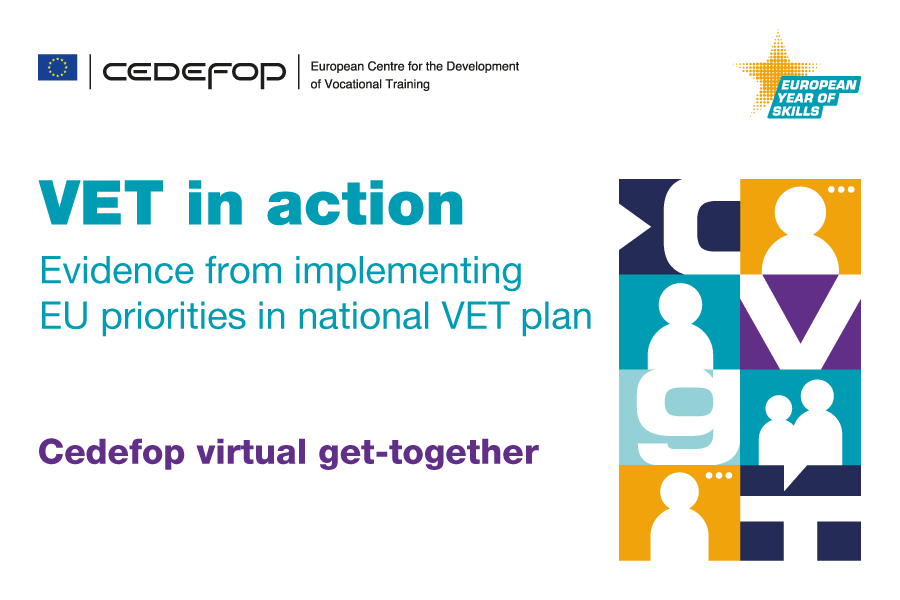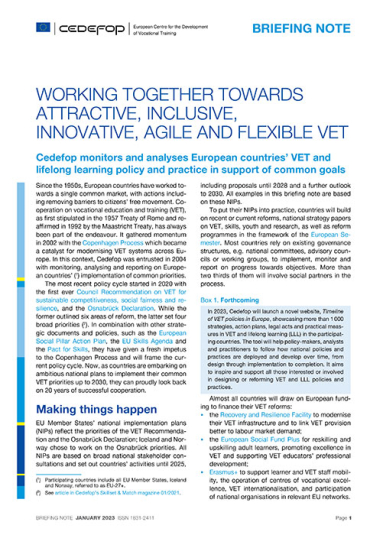Vocation education and training (VET) systems across the EU are affected by the constant changes in the economy, society and labour market, so making them agile and flexible is of paramount importance for the way forward.
This is one of the main outcomes of the Cedefop’s 9th virtual get-together, one of a series of events to mark the European Year of Skills, which attracted 180 VET experts and policy-makers from about 50 different countries and focused on evidence from implementing European Union priorities in national VET plans.
The event provided an opportunity for Cedefop expert Irina Jemeljanova to present an analysis of the key achievements and challenges countries face in this journey based on evidence collected from ReferNet, Cedefop’s network for expertise in VET, and the European Training Foundation’s (ETF) Lisa Rustico to share the efforts of the EU candidate countries in the field.
Two panel discussions took place featuring national experts from various countries, centring on how VET can cope with constant challenges by being made agile, flexible and quality assured as well as attractive, excellent and inclusive.

Cedefop expert George Kostakis discussed the priorities that countries need to focus on in the future, thematic areas where more work is needed and where efforts should be intensified to achieve the common objectives agreed at European level, noting among others, that more ought to be done to prepare VET for the twin transition, the emergence of artificial intelligence and the use of extended and virtual reality.
Participants in the event were invited to vote on what they believe should be the top priority for the future and pointed to more flexibility in VET so that the needs of learners are better served.


